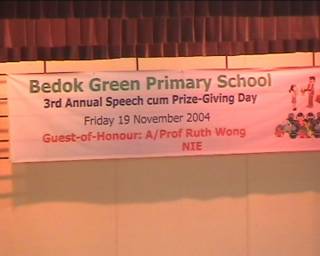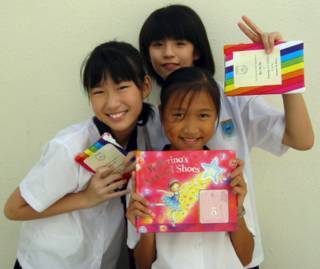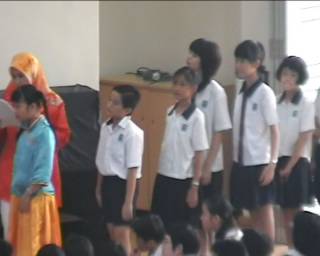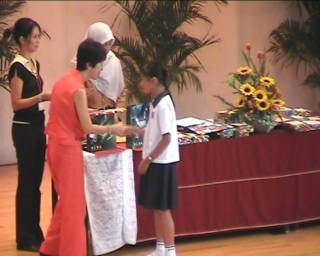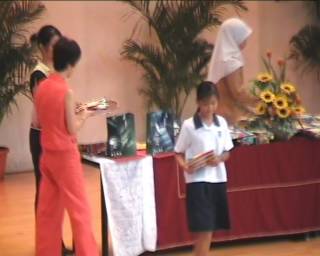Thanks for the lovely poem cum letter. It was certainly very heartwarming, bringing back many memories of these past two years that I have spent with all of you. Just as I have tried my very best to teach all of you, many of you have also taught me many, many things.
I have seen how Jia Yan has changed from a playful girl in P3 to being very responsible this year. You, Emelia, too has become more sensible and mindful of other peoples' feelings. You have rendered tremendous help to this class in areas of speech, drama & dance. Together with Wan Qi and many of you, all of you have made this class my very very very BEST CLASS that I will remember for a long, long time.
I appreciate all that and wish all of you the Best in whatever you do.
May the spirit and friendship formed in this class remain FOREVER.
Mr Anthony Thang
P.S.
I will definitely miss all of you!!


Thank You!

